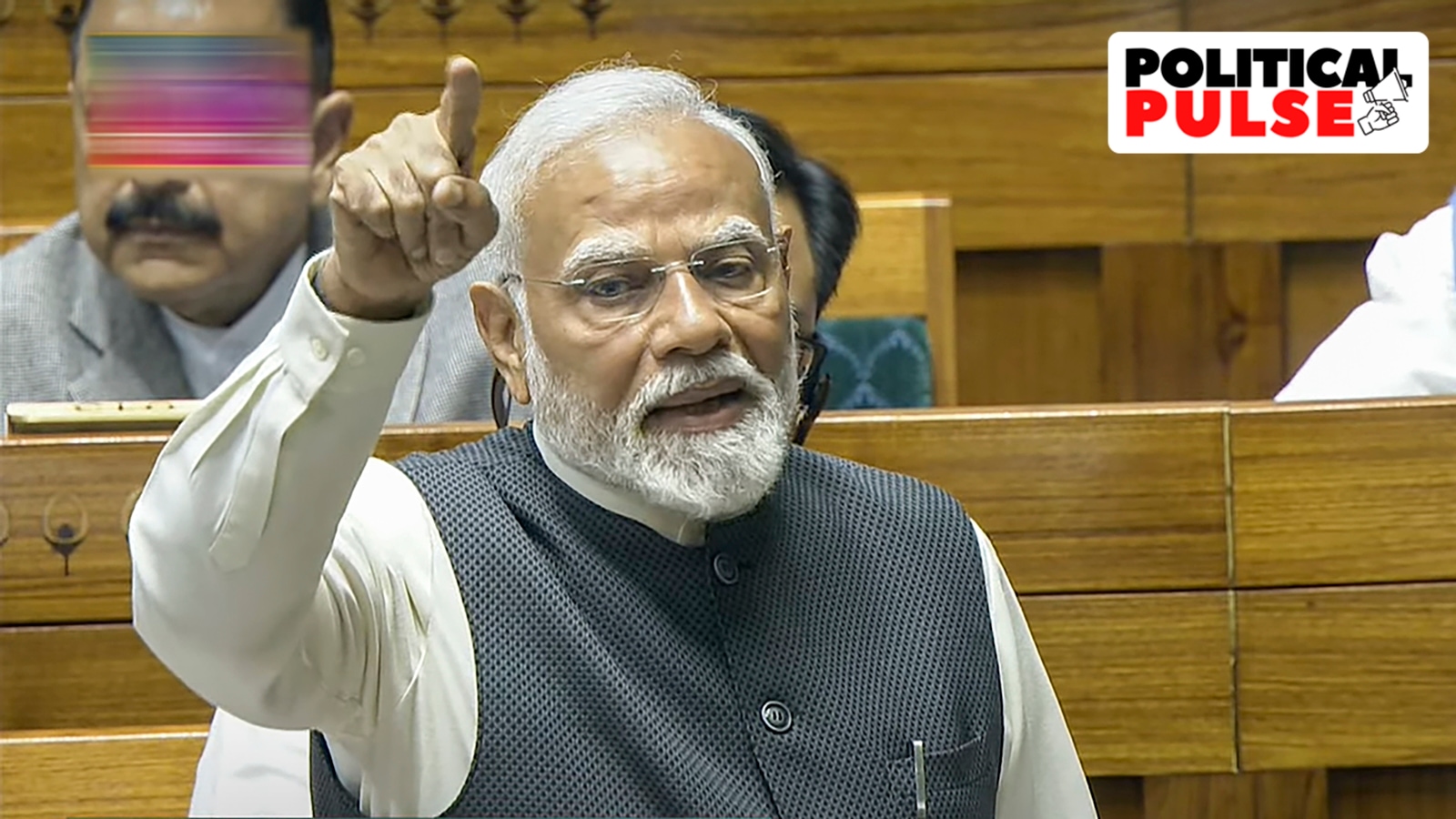 |
|
Prime Minister Narendra Modi's recent Lok Sabha address served as a robust defense against Opposition criticisms, particularly targeting Rahul Gandhi and Arvind Kejriwal. The speech, a response to the Motion of Thanks on the President's Address, centered on Modi's assertion that his government upholds the Constitution's spirit, rejecting accusations of undermining it. This rebuttal formed the core of his argument, directly countering the Opposition's narrative. A significant portion of his speech was dedicated to refuting specific claims and statements made by the Leader of the Opposition, Rahul Gandhi. Modi highlighted the government's commitment to democratic principles, pointing to the inclusion of the LoP in crucial processes, even when there wasn't a formally recognized opposition. He contrasted this approach with Gandhi’s alleged lack of faith in the selection process of the Chief Election Commissioner (CEC), emphasizing the government's adherence to constitutional norms despite the absence of a structured opposition.
A central point of contention was Gandhi's assertion that the Congress was fighting the BJP, the RSS, and the Indian State itself, alleging the capture of key institutions. Modi characterized this statement as indicative of an 'Urban Naxal' mindset, arguing that such viewpoints demonstrate a lack of understanding of the Constitution and national unity. He further criticized Gandhi's description of the President's address as 'boring,' suggesting it reflected a disconnect between the Opposition and the concerns of the common people. The speech also featured a pointed critique of the Aam Aadmi Party (AAP) and its leader, Arvind Kejriwal, although Modi refrained from explicitly mentioning their names. The Prime Minister used the example of the direct benefit transfer (DBT) scheme to highlight the government's commitment to efficient resource allocation, contrasting it with alleged misuse of funds for extravagant renovations of the Delhi Chief Minister's residence, often referred to as the 'Sheesh Mahal.' He also criticized the AAP's failure to implement the Ayushman Bharat health insurance scheme, suggesting this inaction was driven by self-serving political motivations.
The Delhi elections were clearly on Modi's mind, as his speech touched upon the issue of broken electoral promises. He accused certain parties, alluding to the AAP, of misleading the youth with unfulfilled promises, contrasting this with the job creation initiatives in Haryana, where jobs were provided transparently and without corruption. Modi's address also engaged with the Congress's narrative on social justice and the demand for a caste census. He countered the Congress's arguments by highlighting the lack of prior action on granting constitutional status to the backward classes commission during their long tenure in power. He emphasized the discrepancies between words and deeds, drawing attention to the fact that three members of the Nehru-Gandhi family currently hold MP positions, a situation unseen for any other family from a specific caste or community. The use of this example served to underline the perceived hypocrisy in the Congress's pronouncements on social justice and representation.
In conclusion, Modi’s speech was a multi-pronged attack on the Opposition, strategically addressing various criticisms. It presented a clear narrative of his government's commitment to the Constitution and democratic principles, while simultaneously highlighting the perceived shortcomings and inconsistencies in the arguments presented by the Opposition leaders. The use of specific examples and pointed criticisms effectively framed the debate, setting the stage for further political discourse in the run-up to upcoming elections. The speech successfully defended the government's actions, while simultaneously putting its rivals on the defensive.
Source: Rahul Gandhi, Arvind Kejriwal in PM line of fire: Key takeaways from Modi’s Lok Sabha speech
